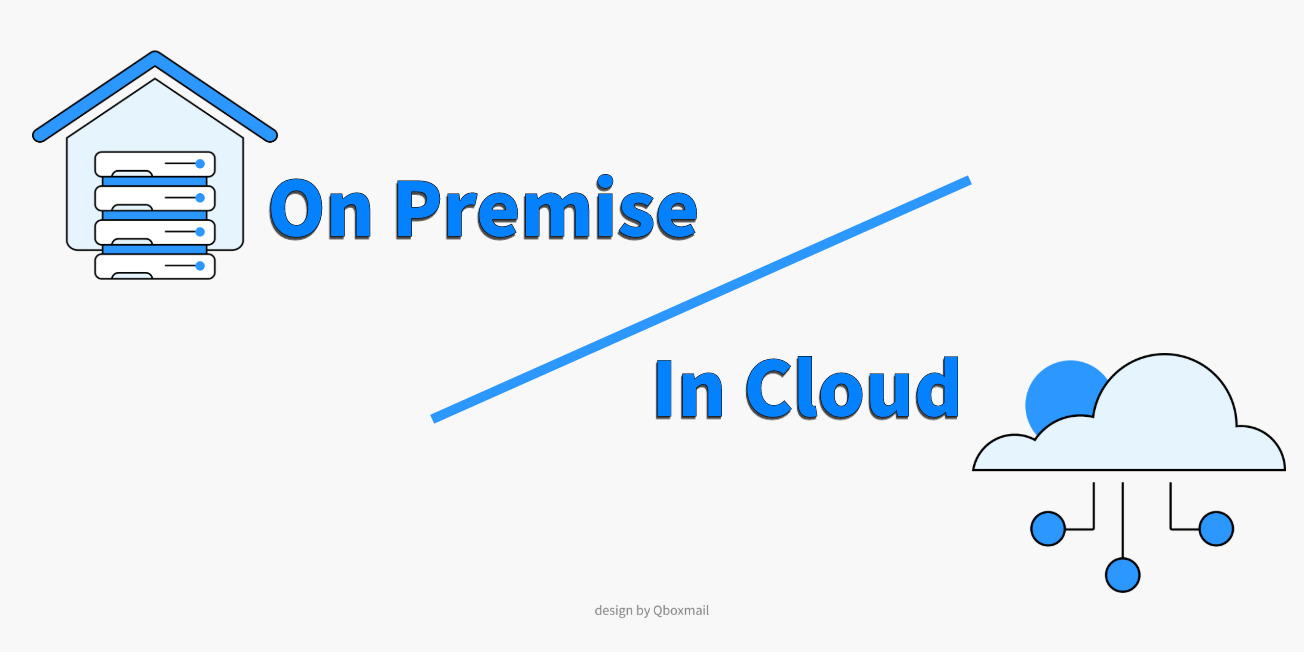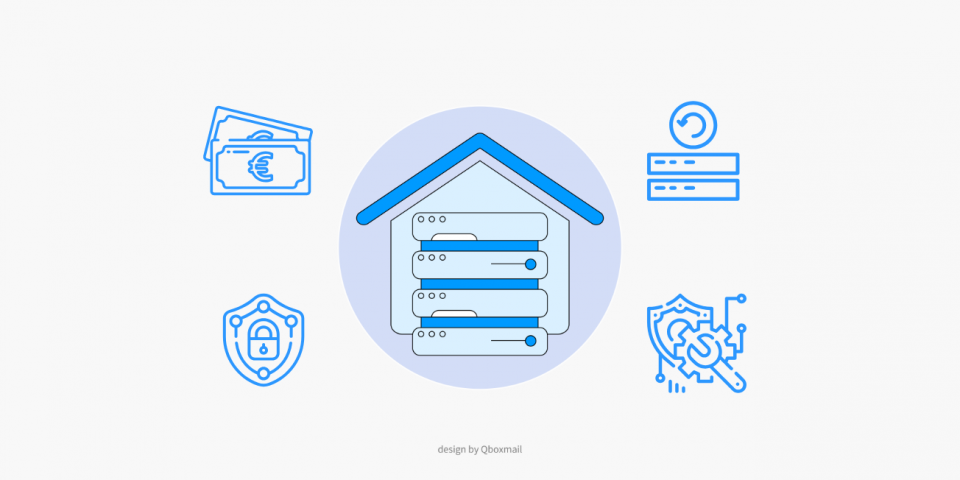Discover the benefits of managing email, calendars, and contacts in the Cloud for your company.Contact us for more information or start a free 30-day trial.
Solutions
Opting for an On-Premise Mail Server or Cloud-Based Solution?

Which is the best solution for your company?
What are the differences between the two configurations?
the differences between these services, including definitions, operational variances, and reasons for choosing On-Premise Mail Server versus Cloud-based.
Let’s simplify your choice by presenting both solutions from an objective standpoint.
On-Premise
On-Premise entails hosting and managing software, data, and IT systems on physical servers owned or located within the company.
The organization assumes responsibility for purchasing, maintaining, updating, securing, and managing the systems, providing greater control and customization.
However, it often requires a significant initial investment in hardware, software, and technical expertise.
Mail Server On-Premise
Using an On-Premise email service indicates a method of hosting and managing emails within the company’s IT infrastructure.
An ‘on-premise’ email server is managed within the organization’s infrastructure, usually at the company’s headquarters or in a data center.
On-Premise email servers often run on Linux with Postfix and Dovecot (e.g., Iredmail) or Windows with Exchange Server.
On-Premise email servers commonly use Linux with Postfix and Dovecot (e.g., Iredmail) or Windows with Exchange Server..
Licenses for open-source Linux systems may be low-cost or free, while those for Exchange Server can be very expensive.
Also, consider hardware costs, power usage for cooling, and maintenance expenses managed by a skilled administrator.
Some features of On-Premise mail server:
• On-Premise Installation
The organization installs mail server software like Microsoft Exchange, Postfix, or Dovecot on a physical or virtual server within their premises.
• Total Control: The company retains full control over the system, including configuration, security, data storage, and maintenance.
• Customization Options
The organization tailors the email server to specific needs, like managing mailbox accounts, establishing backup protocols, and applying filters.
• Management Responsibility
The organization manages software, maintenance, and updates, requiring significant resources in time, expertise, personnel, and budget.
• Cost Considerations
Initial costs may be high, but long-term expenses could be lower than cloud-based services, especially for organizations with many users.
• Security Measures
The organization directly ensures email data security, covering encryption, defense against cyber threats, and regulatory compliance.
The Cloud
The Cloud refers to delivering various computing services (servers, storage, databases, analytics software, CRM, billing, email) over the Internet.
These resources can be quickly made available with great flexibility and priced only based on actual consumption.
Mail Server in Cloud
A cloud-based mail server is hosted on a cloud platform instead of a local physical server.
Companies can choose popular cloud platforms Amazon Web Services (AWS), Microsoft Azure, or Google Cloud Platform (GCP) to host their mail servers.
Alternatively, they can buy email, calendar, and contacts SaaS services from providers such as Qboxmail, Gmail for Business, or Microsoft 365, which offer cloud infrastructure for businesses.
Email Hosting in Cloud
Cloud email hosting is similar to the concept of a mail server in the cloud.
Providers offer this service by hosting email infrastructure on their own infrastructure and platform. These services include mailbox management, antivirus and antispam security, user account management, server maintenance, and more.
Cloud solution relieves the company from directly managing infrastructure, as the provider handles maintenance, updates, security, and feature development.
Email Hosting in Cloud offers a usage-based payment model.
The service spreads costs over time and links them to consumption, typically based on the number of active email accounts
Advantages to opting for a Mail Server in Cloud:
- Scalability: Cloud services easily scale to match organizational needs in storage space and user count.
- Accessibility: Users access their email from anywhere, on any device with internet, ensuring flexibility and constant accessibility.
- Reliability: Cloud service providers guarantee high uptime and maintain redundant infrastructures for backup and reliability.
- Updates and maintenance: Cloud service provider handles server maintenance and software updates, reducing the company’s infrastructure management burden.
You’ve looked at the differences between an On-Premise Mail Server and Cloud Email, and decided Cloud is best for your business?
So, consider Qboxmail’s solution.
